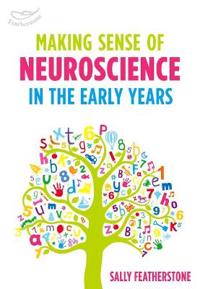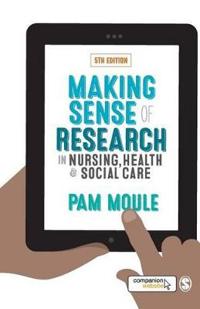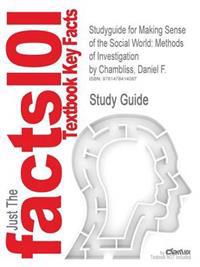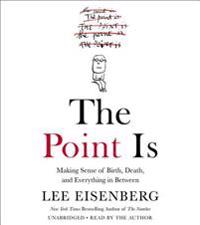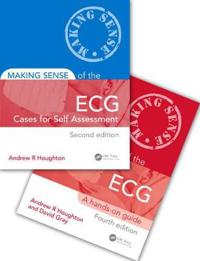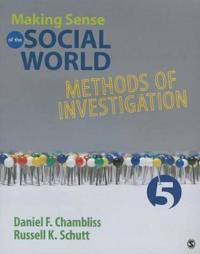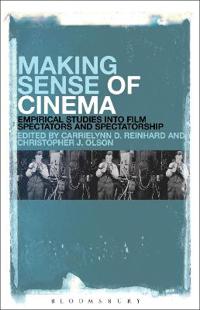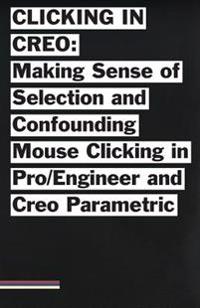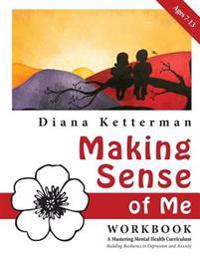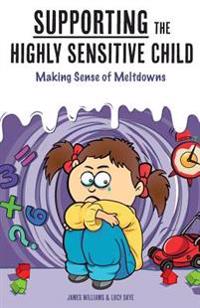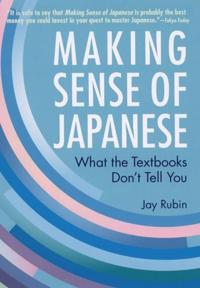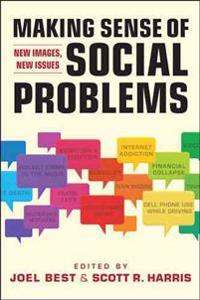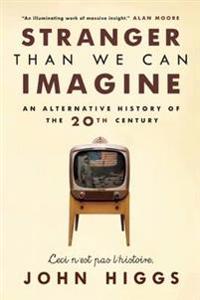Making sense of neuroscience in the early years
ISBN: 9781472938312 - UTGIVEN: 2017-09Translating research about child neuroscience into practice in education is a daunting prospect for most practitioners. In fact, many see it as fraught with difficulties and risky. However, the importance of this research has never been more important. The context of the early years in the UK, has s[...]
Making Sense of Research in Nursing, Health and Social Care (Pocket)
avPam Moule
ISBN: 9781473907539 - UTGIVEN: 2015-02What is research? Why is it important in health and nursing? How should students use evidence in practice? This short and simple book for those who are completely new to research will answer all your students' questions about the subject. It will help them to make sense of the various and often conf[...]
The Point Is: Making Sense of Birth, Death, and Everything in Between (cd-bok)
ISBN: 9781478964797 - UTGIVEN: 2016-02In this engaging and provocative new book, Lee Eisenberg, bestselling author of "The Number," dares to tackle nothing less than what it takes to find enduring meaning and purpose in life.
He explains how from a young age, each of us is compelled to take memories of events and relationships and s[...]Making Sense of the ECG with Cases for Self Assessment (Häftad)
avAndrew Houghton
ISBN: 9781482242638 - UTGIVEN: 2014-06Interpreting an ECG correctly and working out what to do next can seem like a daunting task to the non-specialist, yet it is a skill that will be invaluable to any doctor, nurse, or paramedic when evaluating the condition of a patient. Making Sense of the ECG has been written specifically with this[...]
Making Sense of the Social World
ISBN: 9781483380612 - UTGIVEN: 2015-01Undergraduate students of social research methods across the social sciences.
Making Sense of Data (Häftad)
avMiriah Meyer, Danyel Fisher
ISBN: 9781491928462 - UTGIVEN: 2016-09-30Making Sense of Fluids and Electrolytes (häftad)
ISBN: 9781498747196 - UTGIVEN: 2017-04Interpreting the fluid requirements of a patient and working out what to do next can seem like a daunting task for the non-specialist, yet it is a skill that any doctor, nurse or paramedic needs to be fully appraised of and comfortable with. Making Sense of Fluids and Electrolytes has been written s[...]
Making Sense of Cinema
ISBN: 9781501302947 - UTGIVEN: 2016-02There are a variety of theoretical and methodological approaches to researching how film spectators make sense of film texts, from the film text itself, the psychological traits and sociocultural group memberships of the viewer, or even the location and surroundings of the viewer. However, we can on[...]
The Trinity Untangled: Making Sense of a Sensible Doctrine (häftad)
ISBN: 9781502771049 - UTGIVEN: 2014-10Clicking in Creo: Making Sense of Confounding Mouse Clicking in Pro/Engineer and Creo Parametric (häftad)
ISBN: 9781505641929 - UTGIVEN: 2015-01Making Sense of Me: A Children's Workbook: Building Resilience to Depression and Anxiety (häftad)
ISBN: 9781523718603 - UTGIVEN: 2016-02Making Sense of Research in Nursing, Health and Social Care
ISBN: 9781526420817 - UTGIVEN: 2018-03What is research and how does it work in the context of nursing, health and social care? Now in its 6th edition, this easy to read guide keeps on providing a concise overview of the different research methods and terminology and helps readers understand how research is implemented in practice.The ne[...]
Making Sense of Research in Nursing, Health and Social Care
ISBN: 9781526430908 - UTGIVEN: 2018-01What is research and how does it work in the context of nursing, health and social care? Now in its 6th edition, this easy to read guide keeps on providing a concise overview of the different research methods and terminology and helps readers understand how research is implemented in practice.The ne[...]
Supporting the Highly Sensitive Child: Making Sense of Meltdowns (häftad)
ISBN: 9781542723015 - UTGIVEN: 2017-01Making Sense of Intractable Environmental Conflicts (Häftad)
ISBN: 9781559639316 - UTGIVEN: 2002-10Despite a vast amount of effort and expertise devoted to them, many environmental conflicts have remained mired in controversy, stubbornly defying resolution. Why can some environmental problems be resolved in one locale but remain contentious in another, often carrying on for decades? What is it ab[...]
Making Sense of the Troubles: The Story of the Conflict in Northern Ireland (Inbunden)
avDavid McKittrick, McKittrick David, David McVea
ISBN: 9781561310708 - UTGIVEN: 2002-03Compellingly written and even-handed in its judgments, this is by far the clearest account of what has happened through the years in the Northern Ireland conflict, and why. After a chapter of background on the period from 1921 to 1963, it covers the ensuing period the descent into violence, the hung[...]
Making Sense of Japanese (Häftad)
avJay Rubin
ISBN: 9781568364926 - UTGIVEN: 201303Making Sense of Japanese is the fruit of one foolhardy American's thirty-year struggle to learn and teach the Language of the Infinite. Previously known as Gone Fishin', this book has brought Jay Rubin more feedback than any of his literary translations or scholarly tomes, "even if," he says, "you d[...]
Making Sense of the Dollar: Exposing Dangerous Myths about Trade and Foreig (Inbunden)
avMarc Chandler
ISBN: 9781576603215 - UTGIVEN: 2009-08-31"Making Sense of the Dollar explores the many factors--trade deficits, the dollar's role in the world, globalization, capitalism, and more--that affect the dollar and the U.S. economy and lead to the inescapable conclusion that both are much stronger than many people suppose"--Provided by publisher.[...]
Stranger Than We Can Imagine: Making Sense of the Twentieth Century (häftad)
ISBN: 9781593766269 - UTGIVEN: 2015-11In "Stranger Than We Can Imagine," John Higgs argues that before 1900, history seemed to make sense. We can understand innovations like electricity, agriculture and democracy. The twentieth century, in contrast, gave us relativity, cubism, quantum mechanics, the id, existentialism, Stalin, psychedel[...]
Making Sense of Proxy Wars (Inbunden)
avMichael A. (EDT) Innes, William C. (FRW) Banks, Michael A. (EDT) Innes
ISBN: 9781597972307 - UTGIVEN: 2012-05Public debate over surrogate forces and proxy warfare has been largely dormant since the end of the Cold War. The conventional wisdom has been that with the end of the U.S.-Soviet rivalry, state sources of support for proxy guerrilla, insurgent, and terrorist organizations dried up. This only forced[...]
Making Sense of Men: A Woman's Guide to a Lifetime of Love, Care, and Attention from All Men (Häftad)
avAlison A. Armstrong
ISBN: 9781605309095 - UTGIVEN: 200802

